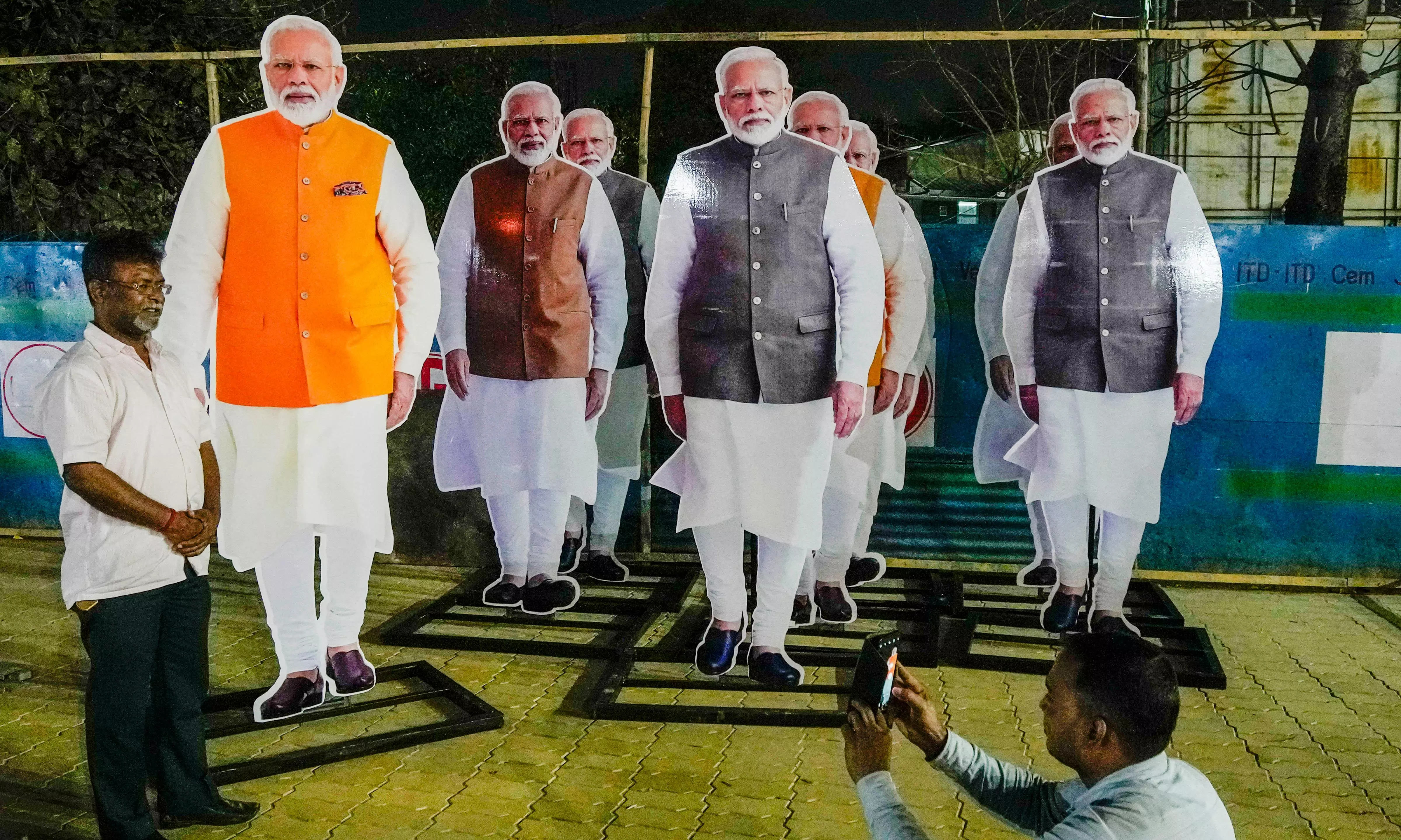
Safety first: BJP's first list reflects risk avoidance and careful math
80% of 195 names that have been announced are 'repeats' from 2019; party says sitting MPs need to prove their mettle, show social media skills to get ticket

It's election time, and the Bharatiya Janata Party is in no mood to take risks.
The party, which announced its first list of candidates on March 2, mostly stuck to the conventional line, announcing names for seats that it won comfortably in the 2019 general elections.
The BJP’s move to announce 195 candidates well before the Election Commission’s announcement of the polling schedule is seen by many as an attempt to gain momentum the party has generated from its recent electoral victories in state assemblies, and the consecration of the Ram temple in Ayodhya.
Of the 195 seats for which candidates have been announced, around 80 per cent are 'repeats', starting from Prime Minister Narendra Modi contesting from Varanasi. Per Election Commission data for the 2019 general elections, most of these candidates won by a margin of at least 1 lakh votes. In states like Rajasthan, Madhya Pradesh, Uttar Pradesh, and Gujarat, the winning margin of candidates was more than 2 lakh votes in 2019.
So, the party more or less expects a safe sail this time, too.
'Choosing is not easy'
In Uttar Pradesh, out of 51 candidates declared, the BJP leadership has retained 42 sitting MPs who won handsomely in the 2019 elections while making just two changes. The BJP had lost the remaining seven seats to the Samajwadi Party (SP) and the Bahujan Samaj Party (BSP) back then.
The scenario is no different in Gujarat, where the BJP leadership has retained 12 candidates and replaced only three for the 15 seats announced so far.
But, retaining a leader for a Lok Sabha seat is not that simple, says the BJP.
Talking to The Federal, BJP’s national spokesperson RP Singh said: “It is true that a majority of the sitting MPs have managed to get tickets. It's not an easy process. The party allots tickets on the basis of the performance of the incumbent parliamentarians. The process includes various stages that a sitting MP needs to clear. Field reports are prepared, surveys are conducted, and feedback is collected from the party organisation before ticket is allotted to a sitting MP.”
Singh revealed that senior BJP leaders also take into account the social media performance of the candidate or the sitting MP before allotting party ticket.
Honourable exits, major changes
Interestingly, some of the sitting BJP MPs made their exits, announcing the decision on social media platforms like X. The first to do so was cricketer-turned-politician and East Delhi MP Gautam Gambhir.
The announcement made by Gambhir just before the first list came out suggests that some sitting parliamentarians like former Union minister Harsh Vardhan and Jayant Sinha chose the option of taking an honourable exit from active politics instead of being dropped from the list of candidates.
Similarly, former Deputy Chief Minister of Gujarat Nitin Patel has also decided not to contest the Lok Sabha polls.
Capital equations
In Delhi, the BJP has taken a break from it's low-risk line. The party has changed its candidates in four out of the five seats announced in the capital.
Praveen Khandelwal has been named as the candidate from Chandni Chowk Lok Sabha Sabha seat, dropping two-term MP and former Union minister Harsh Vardhan. Two-term MP Parvesh Sahib Singh Verma has been replaced with Kamaljeet Sehrawat in West Delhi seat.
The BJP has allotted ticket to Bansuri Swaraj, daughter of late party leader Sushma Swaraj, as its candidate from New Delhi Lok Sabha constituency, currently held by Union Minister Meenakshi Lekhi. It named Ramvir Singh Bidhuri as its candidate, dropping Ramesh Bidhuri, in South Delhi constituency.
Battle with Congress, INDIA bloc
Another interesting point in Saturday's list how the BJP has positioned its 'safe' leaders in direct contest with the Congress in several seats. Out of the 195 names announced, the contest on 40 per cent of the seats will be directly against the Congress, in states like Gujarat, Madhya Pradesh, Rajasthan, Uttarakhand, and Chhattisgarh. In another 42 per cent of these seats, the BJP candidates will be up against regional parties that are part of the INDIA alliance.
“It is no surprise that the BJP leadership is targeting safe seats, especially in the Hindi heartland. Since the 2014 general elections, the BJP has managed a very high strike rate against Congress,” said Ashutosh Kumar, political science professor at the Panjab University, speaking to The Federal.
"There are nearly 220 seats where the BJP and Congress have a direct contest, and the BJP has managed to win the majority of these seats. Similarly, the strike rate of BJP is high in states of Uttar Pradesh, where it is in contest with the Samajwadi Party (SP)," Kumar added.

